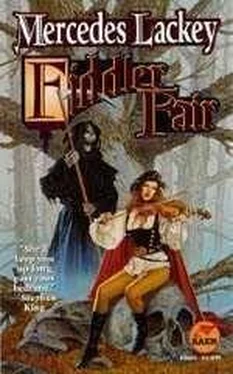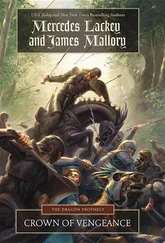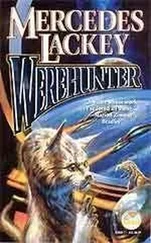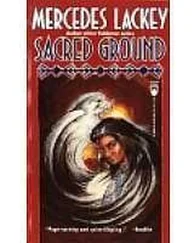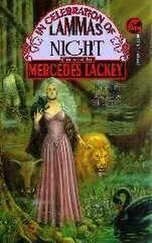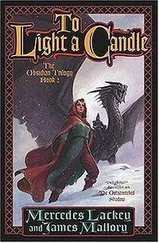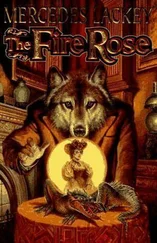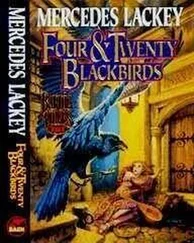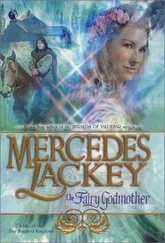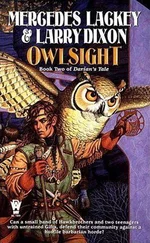The cars pulled out of sight, and she jumped down off the wall. The stranger was still there—and the pits were for the first time today, quiet. They would not be that way for long, as damaged or empty cars staggered into the hands of their keepers, but they were for the moment, and the silence impacted the ears as the silence between incoming artillery barrages had—
She headed for the stranger—but he was heading for her. “Miss Duncan?” he said quickly. “Jim got me this pit pass—he came over to see us do Death of a Salesman last night and when he came back-stage and found out I race too, he got me the pass and told me to check in with you.”
“What kind of racing?” she asked cautiously. It would be just like Jimmy to pal around with some kid just because he was an up-and-coming actor and saddle her with someone who didn’t know when to get the hell out of the way.
“Dirt-track, mostly,” he said modestly, then quoted her credentials that made her raise her eyebrow. “I’ll stay out of the way.”
The kid had an open, handsome face, and another set of killer blue eyes—and the hand that shook hers was firm and confident. She decided in his favor.
“Do that,” she told him. “Unless there’s a fire—tell you what, you think you can put up with hauling one of those around for the rest of the race?” She pointed at the rack of heavy fire-bottles behind the fire-wall, and he nodded. “All right; get yourself one of those and watch our pit, Porsche, and Ferrari. That’s the cost of you being in here. If there’s a fire in any of ’em, deal with it.” Since the crews had other things on their minds—and couldn’t afford to hang extinguishers around their necks—this kid might be the first one on the spot.
“Think you can handle that—what is your name, anyway?”
“Paul,” he said, diffidently. “Yeah, I can handle that. Thanks, Miss Duncan.”
“Dora,” she replied automatically, as she caught the whine of approaching engines. She lost all interest in the kid for a moment as she strained to see who was in front.
It was Lola, but the car was already in trouble. She heard a tell-tale rattle deep in, and winced as the leaders roared by—
Jimmy was in the first ten; that was all that mattered, that, and his first-lap time. She glanced at Fillipe, who had the stop-watch; he gave her a thumbs-up and bent to his clipboard to make notes, as he would for almost every lap. She let out her breath in a sigh.
“Miss Duncan, how did you get into racing?”
She had forgotten the kid but he was still there—as he had promised, out of the way, but still within talking distance.
She shook her head, a rueful smile on her lips. “Glory. How fleeting fame. Retire, and no one’s ever heard of you—”
“Oh, I know all about the Grand Prix wins,” the kid said hastily. “I just wanted to know why you stopped dancing. Jimmy told me you were kind of a—big thing in Europe. It doesn’t seem like a natural approach to racing. I mean, Josephine Baker didn’t go into racing.”
She chuckled at being compared to the infamous cabaret dancer, but no one had ever asked her the question in quite that way. “A couple of reasons,” she replied, thoughtfully. “The biggest one is that my dingbat brother was a better dancer than I ever was. I figured that the world only needed one crazy dancing Duncan preaching Greek revival and naturalism. And really, Ruth St. Denis and Agnes de Mille were doing what I would have been doing. Agnes was doing more; she was putting decent dancing into motion pictures, where millions of little children would see it. When I think about it, I don’t think Isadora Duncan would have made any earthshaking contributions to dancing.” Then she gave him her famous impish smile, the one that peeled twenty years off of her. “On the other hand, every Grand Prix driver out there does the ‘Duncan dive’ to hit the cockpit. And they are starting to wear the driving suits I’ve been working on. So I’ve done that much for racing.”
The kid nodded; he started to ask something else, but the scream of approaching engines made him shake his head before she held up her hand.
Jimmy was still there, still within striking distance of the leaders. But there was trouble developing—because the Ford drivers were doing just what Dora had feared they would do. They were driving as a team—in two formations of three cars each. Quite enough to block. Illegal as hell, but only if the race officials caught on and they could get someone on the Ford team to spill the beans. Obvious as it might be, the worst the drivers would get would be fines, unless someone fessed up that it was premeditated—then the whole team could be disqualified.
Illegal as hell, and more than illegal—dangerous. Dora bit her lip, wondering if they really knew just how dangerous.
Halfway through the race, and already the kid had more than earned his pit-pass. Porsche was out, bullied into the wall by the Ford flying-wedge, in a crash that sent the driver to the hospital. Ferrari was out too, victim of the same crash; both their LMCs had taken shrapnel that had nicked fuel-lines. Thank God Paul’d been close to the pits when the leaking fuel caught fire. The Ferrari had come in trailing a tail of fire and smoke and the kid was right in there, the first one on the scene with his fire-bottle, foaming the driver down first then going under the car with the nozzle. He’d probably prevented a worse fire—And now the alliances in the pits had undergone an abrupt shift. It was now the Europeans and the independents against the Ford monolith. Porsche and Ferrari had just come to her—her, who Porsche had never been willing to give the time of day!—offering whatever they had left. “Somehow” the race officials were being incredibly blind to the illegal moves Ford was pulling.
Then again . . . how close was Detroit to Wisconsin?
It had happened before, and would happen again, for as long as businessmen made money on sport. All the post-race sanctions in the world weren’t going to help that driver in the hospital, and no fines would change the outcome of the inevitable crashes.
The sad, charred hulk of the Ferrari had been towed, its once-proud red paint blistered and cracked; the pit crew was dejectedly cleaning up the oil and foam.
On the track, Jimmy still held his position, despite two attempts by one of the Ford wedges to shove him out of the way. That was the advantage of a vehicle like the Bugatti, as she and the engineers had designed it for him. The handling left something to be desired, at least so far as she was concerned, but it was Jimmy’s kind of car. Like the 550 Porsche he drove for pleasure now, that he used to drive in races, she’d built it for speed. “Point and squirt,” was how she often put it, dryly. Point it in the direction you wanted to go, and let the horses do the work.
The same thing seemed to be passing through Paul’s mind, as he watched Jimmy scream by, accelerating out of another attempt by Ford to pin him behind their wedge. He shook his head, and Dora elbowed him.
“You don’t approve?” she asked.
“It’s not that,” he said, as if carefully choosing his words. “It’s just not my kind of driving. I like handling; I like to slip through the pack like—like I was a fish and they were the water. Or I was dancing on the track—”
She had to smile. “Are you quoting that, or did you not know that was how they described my French and Monte Carlo Grand Prix wins?”
His eyes widened. “I didn’t know—” he stammered, blushing. “Honest! I—”
She patted his shoulder, maternally. “That’s fine, Paul. It’s a natural analogy. Although I bet you don’t know where I got my training.”
He grinned. “Bet I do! Dodging bombs! I read you were an ambulance driver in Italy during the war. Is that when you met Ettore Bugatti?”
Читать дальше
